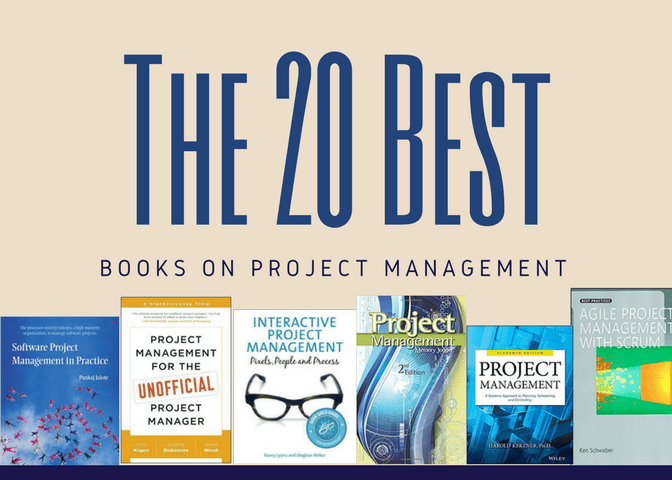One of the greatest assets in a project manager is continued learning. While learning on the job is a necessity, keeping up with the latest research, developments, and frameworks for management on your own time can help you to show out even more. And while most time spent learning is valuable, purposeful and high-impact learning is obviously even better. With that in mind, we did the legwork for finding the most well-reviewed and valuable project management books of the last few years. This list of books is designed for readers without an extensive background in project management, recent career-changers, and those who need a refresher on new technologies and methods in project management. To create this list, we considered the number of Goodreads reviews (the more reviews, the higher on the ranking) in conjunction with the average review rank. The books with the best reviews and the most reviews made our Top 20.
1. Making Things Happen: Mastering Project Management

(O’Reilly Media, 1 April 2008)
Microsoft project veteran, Scott Berkun, takes his 9 years of experience as a program manager in writing the essays that make up Making Things Happen. The essays in this book use field-based strategies to explain how to define, lead, and manage projects. While the book is ideal for project managers in software engineering, it contains useful advice for all project managers. Each essay takes up different topics like making decisions, leadership, project requirements, and how to manage failure or problems. While Berkun doesn’t necessarily draw for a specific management philosophy or methodology, the book uses his hands-on experience as a program manager for Internet Explorer and taught project management for Microsoft’s internal best practices groups to offer inspiration, advice, and in-depth exercises.
2. Project Management for the Unofficial Project Manager

(BenBella Books, 7 April 2015)
Even businesses without formal project managers often expect employees to engage in coordinating and managing their projects. That is where Kory Kogon’s, Suzette Blackmore’s, and James Wood’s Project Management for the Unofficial Project Management comes in. This book is written for these types of “unofficial” project managers. As such, it contains practical insights on effective project management and easy-to-understand guides on initiating, planning, executing, monitoring, and completing projects. Each chapter also contains real-life anecdotes, chapter reviews, and “Project Management Proverbs.”
3. Interactive Project Management: Pixels, People, and Process

(New Riders Publishing, 22 April 2012)
Nancy Lyons and Meghan Wilker, authors of Interactive Project Management, walk readers through how to deliver digital interactive projects that make use of software development, marketing, and advertising. The book is designed to help clients, agencies, and industry professionals to understand the role of interactive project managers. In that way, this book is great for CEOs and CMOs that are thinking of increasing their project management staff but want more information on new advances in project management before making any decisions. The book also focuses on how to to build collaborative project management strategies in a digital world.
4. What You Need to Know about Project Management

(Capstone, 7 February 2011)
What You Need to Know about Project Management by Fergus O’Connell focuses on the basics without overusing complex terms that those new to project management might fun hard to understand. Instead, O’Connell organizes the book around need-to-know questions about topics like setting clear goals, making project estimates, tracking projects and their outcomes, and how to make corrections when things go wrong. Because the book covers basic concepts without industry jargon, it is a great resource for small business owners or unofficial project managers. O’Connell also covers some topics related to general business like finding a work/life balance and avoiding stress when faced with big projects. That means that anyone in business could get something out of O’Connell’s book.
5. The Art of Project Management

(O’Reilly Media, 29 April 2005)
The Art of Project Management by Scott Berkun covers practical methods for project completion and time management, as well as information on leadership and team motivation. In that way, it’s a great resource for someone wanting a comprehensive book on project management. Berkun brings all of his experience as a software and web development manager to the book to convey his personal accounts, lessons learned, and practical wisdom about all areas of project management. Berkun divides the book into sections about decision making, putting ideas into practice, project specifications, leadership practices, and damage control. While the book covers all aspects of good project management skills, Berkun’s experience in technology makes this book particularly relatable for up-and-coming managers in the same field.
6. Project Management: A Systems Approach to Planning, Scheduling, and Controlling

(Wiley, 1 November 2005)
First published in 1979, Project Management by Harold R. Kerzner is now in its 9th edition for a reason. Considered to be the go-to source for everything project management, this book applies a streamlined approach to project management that is in line with the Project Management Institute’s Project Management Body of Knowledge, the mandatory training source for certification. In that way, this book is an invaluable resource for anyone wanting to sit project management certification exams. Due to its focus on preparing readers for industry exams, this book is most often used in college classes and comes with instructor guides and quizzes.
7. Manage It!: Your Guide to Modern, Pragmatic Project Management

(O’Reilly, 29 June 2007)
Manage It! by Johanna Rothman is a real-world based guide for project management. The book focuses primarily on how to spot problems with projects and how to fix those problems quickly and easily. Rothman introduces several problem solving and project management methodologies, all with practical application guides, that readers can easily translate to their specific projects and problems. In that way, Rothman’s book is best suited for existing project managers who are looking to improve their management skills especially in areas of risk management and agile project management strategies. It is also particularly useful for technical project managers.
8. Agile Project Management with Kanban

(Microsoft Press, 26 March 2015)
Agile Project Management with Kanban by Eric Brechner focuses on using Kanban, a scheduling and inventory control system for supply chain management. Brechner draws on his experience as a project manager at Microsoft, running projects like Xbox and Xbox.com The first section of the book serves as a quick start guide to setting up Kanban for your company. The remainder of Brechner’s book focuses on how to use Kanban within agile marketing strategies, as well as common and advanced issues faced with Kanban like hitting deadlines and deploying services. The book is ideally suited for project managers who recently switched to or are thinking of switching to Kanban and who work at larger organizations.
9. PMP Project Management Professional Study Guide

(McGraw-Hill/Osborne Media, 22 December 2003)
PMP Project Management Professional Study Guide by Joseph Phillips focuses on preparing and Taking the Project Management Professional (PMP) certification exam. The book covers both content areas to study as well as study tips and tricks. Phillips’s guide employs an integrated study system that covers all areas of the PMP exam, offers hundreds of practice exam questions, and hands-on exercises. The book also comes with a CD study guide filled with additional practice exam software, interactive tutorials, and lab simulations. This book is particularly useful for students and recent graduates preparing to sit their exams.
10. Project Management Memory Jogger

(Goal/QPC, 1 January 1997)
First published in 1997 and now in multiple editions, Project Management Memory Jogger by Paula Martin and Karen Tate focuses on the entire project management team and how to achieve high-results. Martin and Tate offer easy-to-use guides for every member of the project management team for a variety of project types. Designed to be a pocket guide, this book works great as a quick reference or troubleshooting tool. Not only is this pocket guide an easy reference, it is also consistent with PMBOK industry standards that highlights tools for continual process improvement and accessible management styles. This book is particularly useful for existing project managers who are looking to improve team participation, empowerment, and individual accountability, all while maintaining the project’s bottom line.
11. Information Technology Project Management
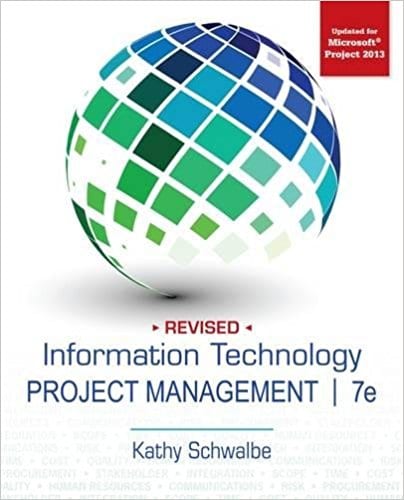
(Course Technology, 15 March 2005)
Kathy Schwalbe’s Information Technology Project Management is a best-selling IT project management book now in its fourth edition. The book recreates various projects, both successful and failed, in order to provide readers with real-world examples of the good and bad of project management outcomes. Through these examples, Schwalbe explains foundational concepts like project integration, scope, cse, human resources, risk, and procurement. In that way, this is a great resource for those new to project management and students preparing for their PMP exams. The fourth edition of this book includes an updated PMBOK guide and reviews of recent technology, including a revised companion website.
12. Software Project Management in Practice
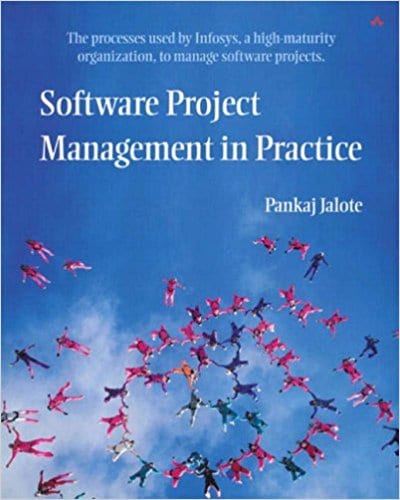
(Addison-Wesley Professional, 10 February 2002)
Software Project Management in Practice by Pankaj Jalote is specifically designed for software developers and IT project managers. With that in mind, Jalote takes up one example, Infosys Technologies, for the entire book. By focusing on one organization, Jalote can be specific to the demands of software project managers, while also detailing the specific processes needed in that field. As such, this book is a great resource for project managers looking to start a career at a technology firm or for an existing IT employee looking to take on a managerial roll.
13. HBR Guide to Project Management
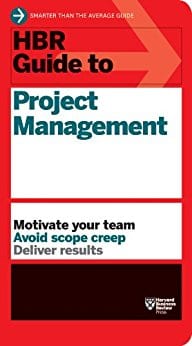
(Harvard Business Review Press, 15 January 2013)
The HBR Guide to Project Management comes from one of the nation’s most prestigious business schools. This book puts much of that experience and knowledge into easily digestible chapters designed to help project managers meet their goals on time and on budget. The book is broken down into sections that focus on team building, breaking down objectives, creating project schedules, monitoring progress, managing stakeholders, and gauging success. Readers with experience in project management will get the most out of this book as it is written as a best-practices guide for those in the field, as opposed to fresh graduates or those looking for a comprehensive exam overview.
14. Agile Project Management for Dummies
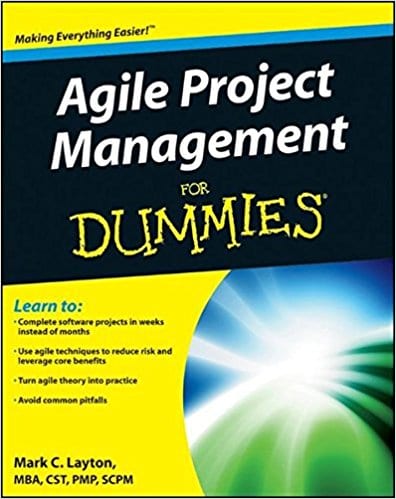
(John Wiley & Sons, 8 May 2012)
Agile Project Management for Dummies by Mark C. Layton serves as a basic, step-by-step guide to agile project management strategies. As such, the book focuses on mobile and web technology development and software project development. With software developers as its primary audience, this book offers practical advice for completing and implementing projects with Agile techniques, common Agile pitfalls, and real-world examples. As with many other books in the “for Dummies” series, this one is best for people new to project management with little to no experience in agile methodology.
15. A Guide to the Project Management Body of Knowledge
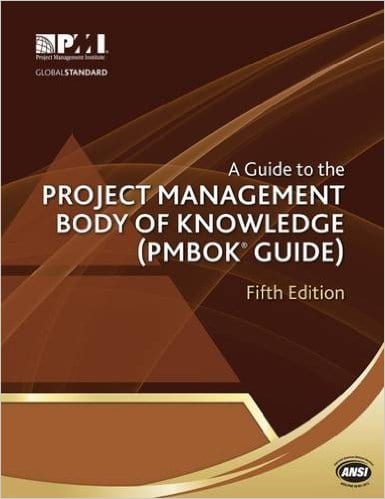
(Project Management Institute, 1 January 2004)
A Guide to the Project Management Body of Knowledge, published by the Project Management Institute, offers a road map to gaining organizational competency across positions from project manager to senior executive. The PMBOK Guide is seen as a global standard for project management, containing fundamental practices, changing technology, and current issues for project managers. The newest edition expands on several chapters and brings together knowledge from several industry experts. As a wide ranging guide, this book is a good resources for large companies, non-profits, and government agencies looking to improve their project management processes. Because the PMBOK Guide is published by the same organization that runs several major project management certifications, this is also a good resource for those studying for their exams.
16. Agile Project Management with Scrum

(Microsoft Press, 18 February 2004)
Agile Project Management with Scrum by Ken Schwaber focuses on using Scrum software to implement agile project management strategies. Schwaber, Scrum’s co-creator, identifies real-world examples that include project successes and failures in order to demonstrate Scrum’s uses and features. Through those examples, this book offers readers a step-by-step guide to using Scrum to solve complex problems, manage changing product requirements, simplify chain of command, reduce project planning time, build and release projects faster, and avoid errors in large-scale implementation. This book is a great resources for those already familiar with IT project management and are new to Scrum or looking to change from a different project management strategies.
17. Earned Value Project Management
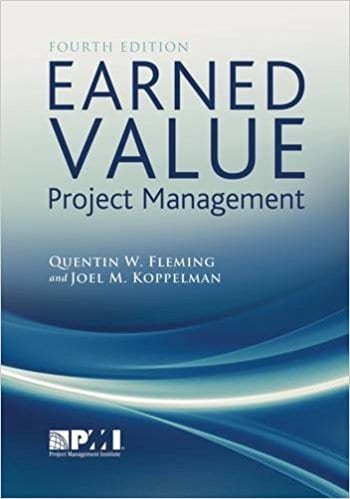
(Project Management Institute, 30 June 2006)
Earned Value Project Management by Quentin W. Fleming and Joel M. Koppelman focuses on “earned value” as a project management technique, specifically related to software projects. Fleming and Koppelman focus on explaining earned value project management as applied to many types of projects that vary in size and complexity. The authors use basic examples like peeling potatoes or building a house that make the minimum requirements to use earned value easy to understand. The book also uses specific examples for software projects, making it particularly useful for software project managers.
18. Project Management Techniques
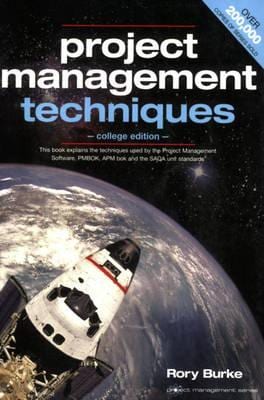
(Burke Publishing, 1 December 2008)
Project Management Techniques by Rory Burke covers the latest planning and control techniques in project management. The book draws on specific examples and techniques from the world of software development and Project Management Institute’s body of knowledge. That means Burke’s book is a great resource for existing project managers, managers looking to increase their project success rates, and implement new techniques. Because of Burke’s focus on software, the book is particularly useful for managers looking to change or increase their project management software.
19. Project Management Metrics, KPIs, and Dashboards: A Guide to Measuring and Monitoring Project Performance
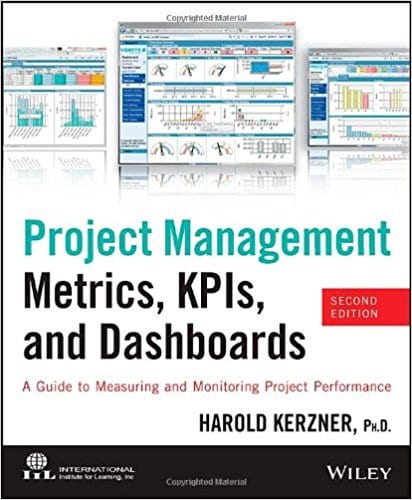
(John Wiley & Sons, 16 August 2011)
Project Management Metrics, KPIs, and Dashboards by Harold Kerzner and John Sponholtz focuses on key strategies for measuring project management performance. The book considers updated computer technology, unpredictable economy, and stakeholder involvement for project managers. Kerzner and Sponholtz also include how to apply those aspects to long-term organizational goals. This book is particularly useful for functional managers looking to increase their understanding of project management metrics, PMBOK, and monitoring KPIs.
20. An Introduction to Project Management

(Course Technology, 15 December 2005)
An Introduction to Project Management by Kathy Schwalbe offers a general introduction to the field. The book also provides up-to-date information on project management strategies, with over 50 examples of tools and techniques and how to implement them on any given project. In addition to project management, Schwalbe also covers portfolio and program management as related to project management. With such a wide range of applications, this book is great for those without much experience in project management, students preparing for exams, or those looking to move into project management positions within their given field.
